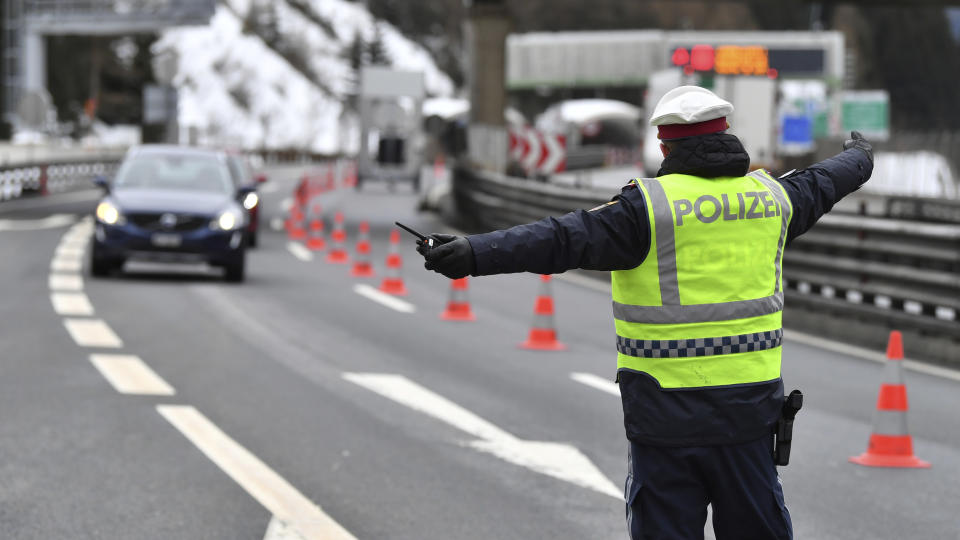Why has Italy recorded the second most coronavirus cases in the world?
Coronavirus has been sweeping through Italy over the past few weeks and has already killed hundreds of people.
The southern European nation now has the largest number of coronavirus cases outside China, where the outbreak started late last year.
Monday saw another 1,807 people infected, bringing the total to 9,172, and cases of the virus have been confirmed in all 20 Italian regions.

The Italian government extended its emergency coronavirus measures on Monday, which include travel restrictions and a ban on public gatherings, to the entire country.
With the total number of confirmed coronavirus cases creeping towards 10,000, why has Italy been so badly affected?
Coronavirus may have gone undiagnosed for months
Experts believe one possible reason for the high infection rate is that coronavirus may have been spreading through the country long before it was officially detected.
In fact, health officials say the infection may have gone undetected in the country since late January.
The first person to test positive in the north of Italy who had not been to China was confirmed to have coronavirus on 21 February.

Read more: Italy travel advice: How will tourists be affected by coronavirus lockdown?
By that stage the 38-year-old man had already infected his wife and several doctors, nurses and patients at the hospital where he had attended with flu-like symptoms three days earlier.
Experts now think the virus may have been present and spreading in northern Italy since at least the second half of January.

Ageing population
On Monday, the death toll from coronavirus in Italy rose to 463, and the country’s fatality rate currently stands at 5% – higher than the 3-4% estimates elsewhere.
One reason for Italy’s high death toll may be the ageing populations of the worst affected areas.
The country has the world’s oldest population after Japan and most of those who have died are elderly with previous health issues.
Read more: Thousands of Britons ‘stranded’ in locked-down Italy as BA axes flights
Professor Marina Della Giusta, from the University of Reading, said: “The little we know so far of this virus is that it has much higher mortality rates for older people, at least that’s what the Chinese data suggests so far.
“Italy is the oldest country in Europe probably so that won’t be surprising. The demographic affected is way bigger than it would be in lots of other places.”

Sociable culture to blame?
According to Professor Della Giusta, the rapid spread may also be attributed to the sociable nature of Italian culture.
Italians generally enjoy the great outdoors and meeting up with one another, she said, and interactions often include far more touching than in other parts of the world.
“The interpersonal physical space in Italy is a lot shorter than it is in the UK,” Professor Della Giusta added.
“Their habit is to kiss each other when you say hello.
“There is higher physical contact anyway around the Mediterranean between people and people are outdoors more at this time of year than they are in other parts of Europe, where it’s still a bit colder.”

Ignoring emergency policy
Experts believe government and international health advice on self-isolation may not have been observed when the first cases were declared in Italy last month.
Professor Della Giusta believes that movement between regions did not stop when the schools were first closed in northern regions a few weeks ago and many people did not take self-isolation measures.
“When schools got shut in Lombardy a lot of people just took their kids and went off on holiday to their holiday homes in the mountains and at the seaside in the other regions.
“They thought they were making their kids safe by taking them away, but this kind of behaviour is really very damaging.”

 Yahoo News
Yahoo News 
